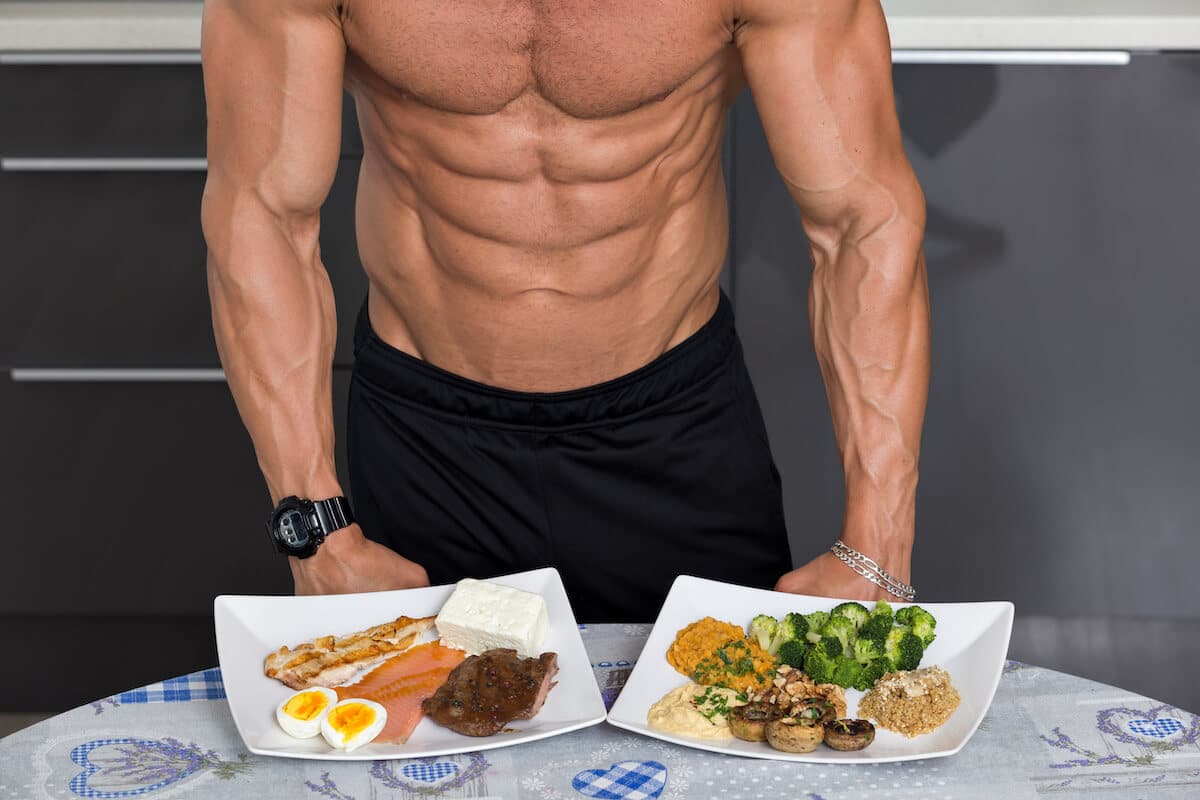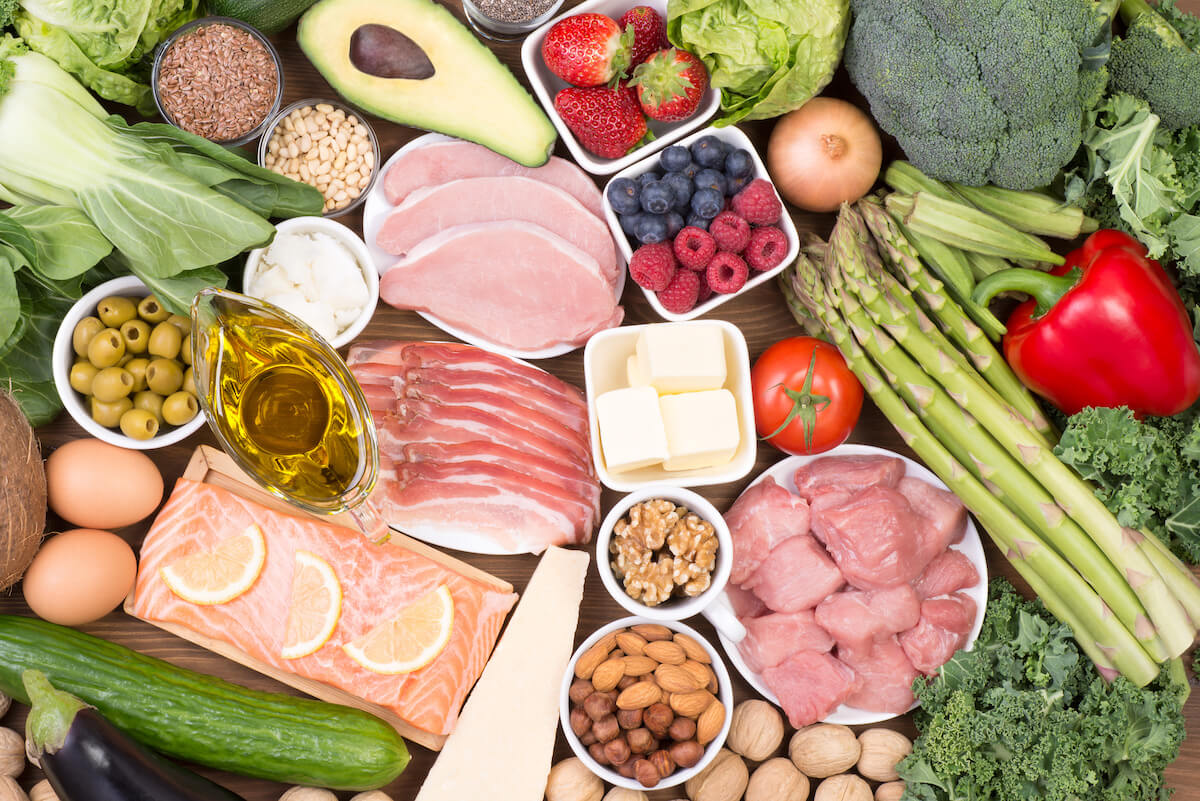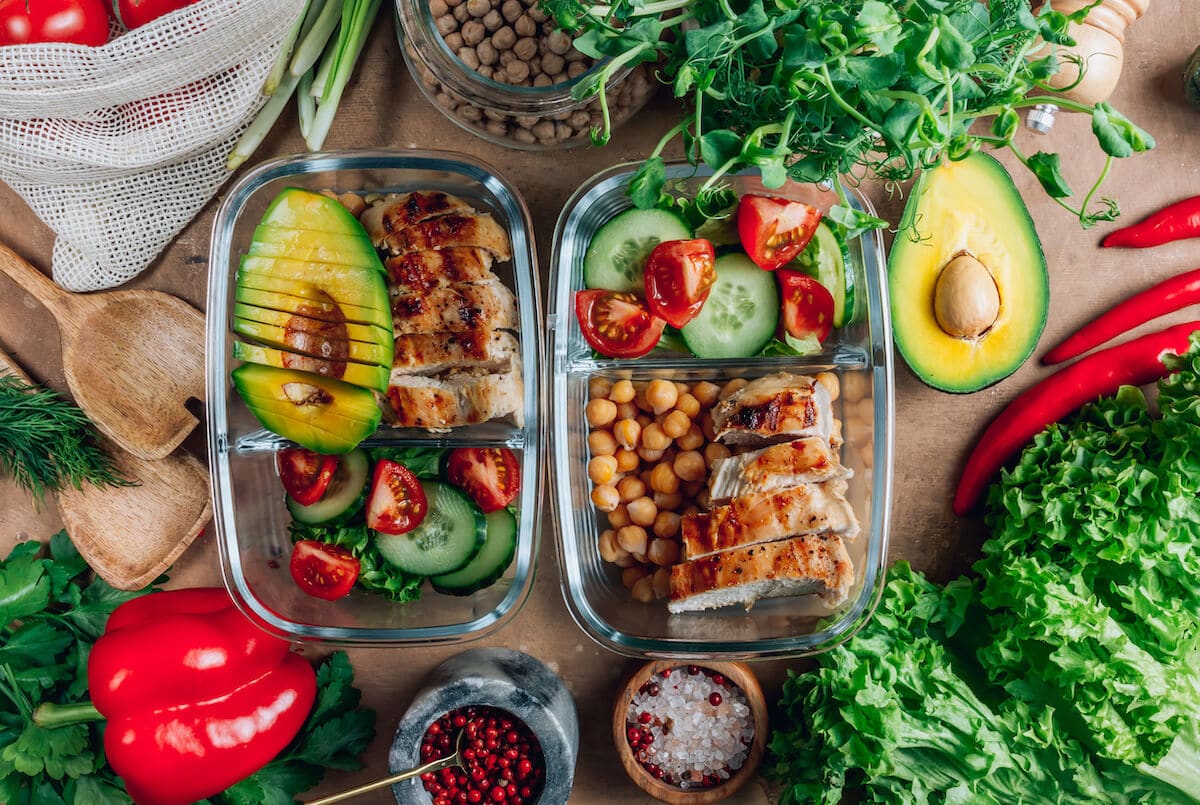
13 Jun 9 Best Bulking Foods for Your Next Bulking Cycle
Looking for the best bulking foods to help you build an ideal physique? Bodybuilders commonly use bulking and cutting cycles to first build muscle mass and then lose fat for a lean appearance. During the bulking phase, you’ll provide your body with a calorie surplus to ensure it has enough energy to gain muscle despite a challenging workout routine.
Contrary to what you might hear in the gym, it’s better to consume bulking foods to support your body instead of eating anything you want. While bulking might require a high caloric intake, what you eat still matters. We’ve highlighted nine of the best bulking foods to point you in the right direction.
What Is Bulking?

Bulking is a common practice in bodybuilding to gain muscle and strength before a cutting cycle, which focuses on reducing body fat. During a bulking cycle, you’ll increase the number of calories you consume and provide your body with everything it needs to pack on muscle mass.
As you consume more calories, you’ll likely see an increase in body fat. But fat gain isn’t what you’re aiming for — that’s merely a result of staying in a calorie surplus. This is why healthy, nutrient-dense foods are integral to any effective bulk, as you want to encourage muscle growth while minimizing excess fat gain.
Clean Bulk vs. Dirty Bulk
You’ll hear bodybuilders talking about clean and dirty bulking, and as you might expect, clean bulking is generally best. A dirty bulk typically focuses on high-calorie junk foods like ice cream, pizza, chips, and fast food. This leads to an increase in weight gain during the bulk, and it typically adds more saturated fats and cholesterol to your diet.
On the other hand, clean bulking diets use high-quality, nutrient-dense foods to promote lean muscle mass and weight gain. For a bulking diet, most nutritionists will create an ideal macronutrient profile, also known as your macros. It can be challenging to hit your macros eating junk foods, but it’ll be easier with clean bulking foods.
Bulking Calorie Intake and Nutrient Balance
Healthy bulking diets typically increase your daily calorie intake by 300-500 calories — anything higher than this can cause a dramatic increase in body weight, but most of it will likely be fat. In addition to adding 300-500 calories per day, you’ll want to look at the balance of your macronutrients. This includes protein, fats, and carbohydrates (carbs).
Here are some typical macronutrient ranges for a bulking diet (published in the National Library of Medicine):
- Protein: 1.6-2.2 grams of protein per kilogram of body weight (1 kg = 2.2 pounds)
- Fat: 0.5-1.5 grams of healthy fats per kg of bodyweight
- Carbs: 3-5 grams or more of carbohydrates per kg of body weight (or enough to account for the remainder of your caloric goal)
Distribute your nutrients as evenly as you can between your meals for the day, whether you’re eating three or six times a day. And remember to focus on healthy fats (polyunsaturated and monounsaturated fats) while avoiding unhealthy fats (saturated and trans fats) and cholesterol.
Protein is particularly important to focus on, as it facilitates muscle growth by providing your body with the building blocks required to repair your muscles after exercise. Look for whole food sources of protein and Ingredient Optimized supplements designed for protein bioavailability, which means it’ll be easier for your body to absorb and use.
Additionally, don’t forget to focus on complete proteins, which contain the essential amino acids that your body can’t make on its own. These amino acids are necessary for muscle growth and numerous other bodily functions, and you need to get them from your diet. Complete proteins are found in animal products like meat, eggs, and dairy, as well as some plant sources, including tofu, pea protein, and quinoa.
9 Best Bulking Foods

A successful bulk is most manageable when you center your diet around the best bulking foods for muscle growth. Remember, the best foods for bulking are nutrient-dense and wholesome — ditch the cookies and pizza and focus on feeding your body what it needs to build muscle.
1. Sweet Potatoes
Sweet potatoes are a healthy, high-fiber option for adding extra calories to your meals. Purple and orange varieties are also high in antioxidants and nutrients that support muscle function, making them even more beneficial for bodybuilders, lifters, and anyone who’s bulking.
2. Cottage Cheese
Cottage cheese is a popular bodybuilder’s snack, and with good reason — it’s high in casein protein, which helps build muscle and help you feel full for longer. Cottage cheese will also add much-needed calcium to support strong bones for heavy lifts. If you’re not a fan of cottage cheese, try Greek yogurt for similar benefits.
3. Lean Proteins
Lean proteins like lean beef, chicken breast, and turkey breast can help you boost your protein intake without adding unhealthy fats to your diet. Firm tofu, also known as high-protein tofu, is a good protein source for a plant-based bulk. You might also add fish like tilapia or salmon for extra protein and some healthy fats. Look for wild-caught and responsibly-farmed sources to ensure you’re getting quality protein.
4. Brown Rice
Brown rice is a whole grain that adds fiber to your diet while helping you boost the total calories in each meal. On the other hand, white rice has a lower nutrient content, and it’s not a whole grain. Try eating brown rice with lean proteins and fresh veggies for a complete and filling meal.
5. Olive Oil
Extra virgin olive oil (EVOO for short) is high in healthy fats and can lower your risk of cardiovascular issues, dementia, and even some cancers. If you don’t want to spring for EVOO, these same benefits come from all types of olive oil. EVOO is simply processed without high heat or chemicals to preserve the nutrients and antioxidants in the oil. A drizzle of olive oil is one of the healthiest high-fat additions you can make to any meal.
6. Avocados
Avocados are high in good-for-you fatty acids and an excellent way to make sure you get enough calories in every meal. They’re also great for adding more fats to low-fat foods like sweet potatoes, beans, legumes, and brown rice. You can add avocado to your meals, eat it as a snack, or mix it in a smoothie.
7. Beans and Legumes
Beans and legumes are fantastic sources of fiber when paired with lean proteins, and they help add complete proteins to your diet when combined with rice. You’ll have a wide variety of beans and legumes to choose from, and it’s hard to go wrong here. For example, lima beans, pinto beans, kidney beans, and lentils are all high in potassium, which is necessary for challenging bulking workouts and proper muscular function.
8. Nuts and Seeds
Nuts and seeds provide good sources of healthy fats, and they’re an excellent choice for a quick, high-calorie bulking snack. Most varieties can help you feel full for longer due to the high-fat content, and they’re typically nutrient-dense. Cashews, almonds, and pumpkin seeds, for example, are all high in magnesium, which is a must for proper muscle function. And while they’re technically legumes, peanuts fall in this category too, and you can use peanut butter as a good source of fats in a pinch.
9. Supplements

Supplements are beneficial for people of all ages and fitness levels, and they’re especially popular among bodybuilders. They can help you add calories and crucial nutrients to your diet, and most allow you to make a quick meal on the go. You’ll most commonly see supplements and protein powders that provide you with amino acids, whey protein, plant protein, and creatine.
You’ll also see post-workout and pre-workout supplements designed to support your body before or after an intense workout. Pre-workouts often contain caffeine and creatine monohydrate to support energy production and individual amino acids that support performance.
According to the previously mentioned report in the National Library of Medicine, there’s evidence that bodybuilders can benefit from adding the following amounts of such ingredients to their bulking diet each day:
- Creatine monohydrate: 3-5 grams
- Caffeine: 5-6 milligrams per kg of bodyweight
- Beta-alanine (amino acid): 3-5 grams
- Citrulline malate (amino acid): 8 grams
Look for products that use Ingredient Optimized proteins, such as MyProtein’s The ioPEA, Performix io Whey Protein, Kaged Muscle Plantein (plant-based), Kaged Muscle Clean Meal (meal replacement), and Glaxon Wonder Collagen.
Sample Bulking Meal Plan

While exact portion sizes depend on the number of calories you’re aiming for (which is best determined by a nutritionist), this meal plan gives you an idea of easy high-protein meals and snacks to eat throughout the day on a bulk:
- Breakfast: Protein shake (try Kaged Muscle Clean Meal) and cottage cheese
- Snack: Cashew, almond, and pumpkin seed trail mix (add unsweetened dried fruits for more flavor)
- Lunch: Turkey breast with brown rice, avocado, and sweet potato drizzled with olive oil
- Snack: Peanut butter on whole-grain toast
- Dinner: Lentil curry over brown rice and olive oil, topped with firm tofu or chicken breast
- Snack: Protein shake (try MyProtein’s The ioPEA) with cocoa powder and frozen bananas to make it thick like soft-serve ice cream
This meal plan pulls from our above list of the best bulking foods, demonstrating how to add them to your diet at all times of the day. Adding unsweetened dried fruits and frozen bananas are examples of how to add other whole foods to your diet for variety and flavor.
Start Your Bulk the Right Way
By basing your diet on the best bulking foods for a healthy, clean bulk, you’ll be supporting your body to build muscle mass for the duration of your bulking cycle. And by avoiding junk foods, you can reduce how much extra body fat you’ll gain and help ensure that most of your added weight comes from lean muscle.
If you struggle to meet your goals for calories and macros, supplements can fill in the gaps. Look for Ingredient Optimized products for high bioavailability. This way, your body can absorb all the protein you see on the label.


